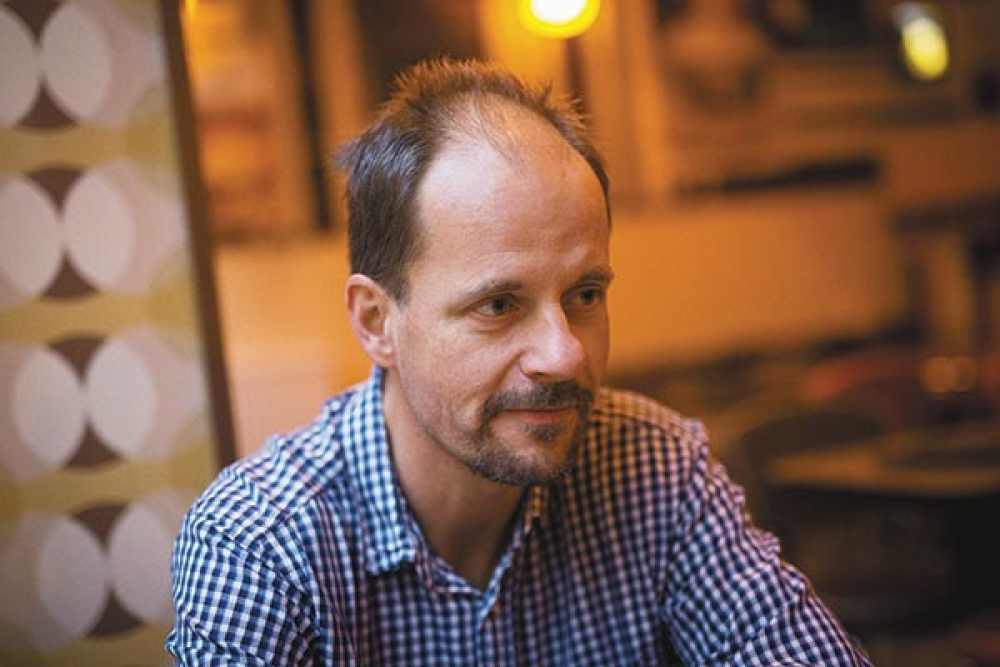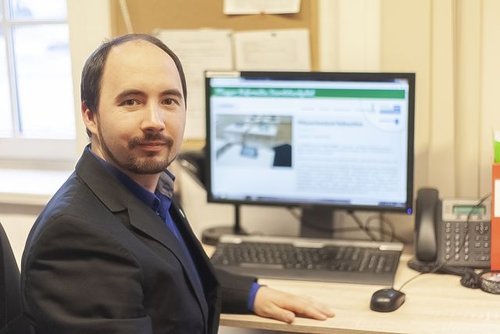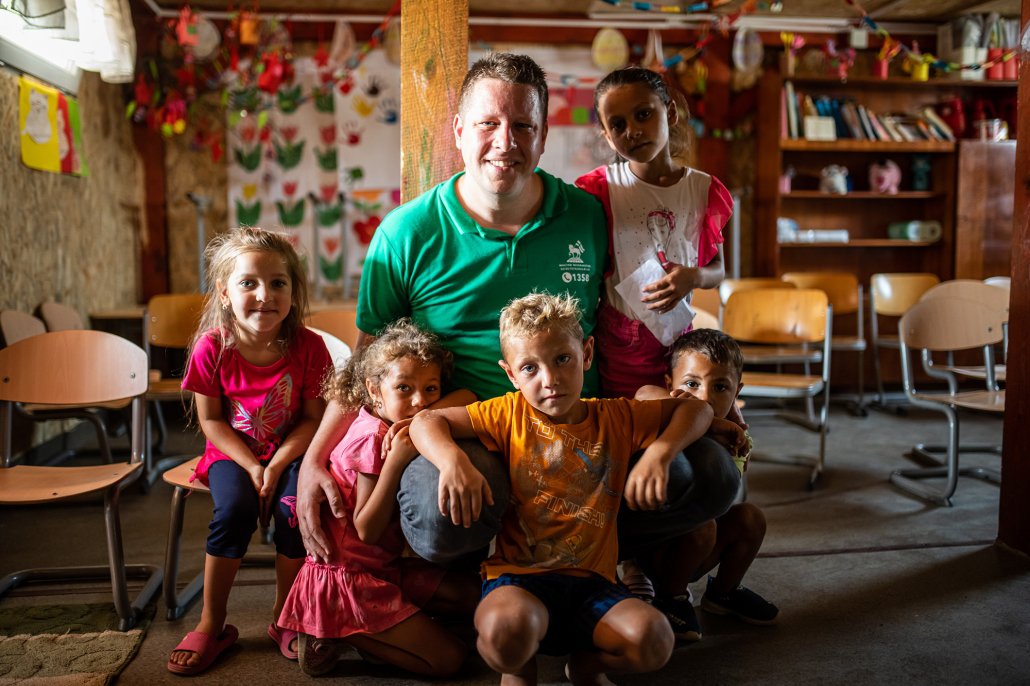A new online platform has been created to help students and teachers in digital education. Voluntary teachers and students, after registering at onkentesmentoralas.hu will be matched by an algorithm automatically in order that each student gets the most appropriate customized support. The new platform is a fruit of civic cooperation.

Illustration
The novel coronavirus pandemic has put both teachers and students in public education to an unexpected test. To help overcome this challenge, the onkentesmentoralas.hu website has been created, where voluntary mentors and mentees can register. Mentors and mentees registered on the site are matched every Friday by an algorithm. They can then work together by using hashtag.school’s digital education platform.
CONNECTING THOSE WILLING TO LEARN
The Hungarian Reformed Church Aid (HRCA), the Institute of Economics of the Centre for Economic and Regional Studies of the Hungarian Academy of Sciences (CERS-IE) and the hashtag.school have teamed up to help those who are willing to mentor and those in need of mentoring find each other on a national level.
Centre for Economic and Regional Studies of the Hungarian Academy of Sciences’ basic goal is the scientific analysis of the Hungarian economy, the international economic and political environment, and of economics in general. The Centre undertakes theoretical and empirical studies in the fields of national and world economics, in regional processes and in other interdisciplinary areas of the Social Sciences.
The self-developed platform onkentesmentoralas.hu helps connect those who want to learn and teach. After a quick registration process, teachers and students are saved in a database. Subsequently, using the matching methodology developed by the Institute of Economics’ Mechanism Design Momentum Research Group, the system automatically organizes students and their instructors in pairs and student groups.
While matching and grouping, optimal teams are created from the available information, tailored to the students' level of knowledge and needs. Thereafter, the training takes place in an online space created by hashtag.school, which is available to participants free of charge. The goal is to help students with subjects that are difficult for them and to make it easier for them to prepare for the haste at the end of the school year, or for eventual end-of-summer supplementary exams.
MOTIVATIONS MET

Tibor Prievara
The new initiative works with reliable, tested methods, guaranteed by the e-mentoring model developed by hashtag.school, which has already been used in several local and national programs. “The VoluMen project is also unique in that it provides ongoing support to all participants. Before starting the mentoring, we support the preparation of the mentors with methodological, pedagogical and technical trainings, and we also offer continued 'exchanged webinars', where case studies can be discussed with teachers. Our mentors can learn how to structure lessons and how to create digital learning materials in the system with the help of short online learning materials and live webinars. This professional and pedagogical network makes the VoluMen system even more special and unique,” explains the benefits of the program Tibor Prievara, one of the founders of hashtag.school.
Gamification and pedagogy - based on Tibor Prievara's method
#School is a unique e-learning framework, as it has always put pedagogy first. All the developments in technology were based on and motivated by classroom practices and needs of teachers. #School, therefore, is the first truly pedagogy-driven system, where IT serves the classrooms and not the other way round, where education is looking for ways to integrate already existing IT solutions. In #School interactive, multimedia lessons can be designed easily. From learning cards to customised strategy game, reshaping lessons is easy - online as well as in the classroom.
Also CERS-IE joined the initiative and, in response to the current situation, created a registration platform capable of channelling voluntary mentoring capacity and generated an algorithm that automatically matches mentors and mentees. Economic Institute’s experts in Economics of Education, Dániel Horn and Zoltán Hermann, elaborated the criteria used for the optimization of the matching mechanism. The most important aspect was to create as much mentoring relationship as possible for practicing subjects where students need the most help and mentors can offer the necessary professional support. Considering preferences and conditions, an algorithm re-calculates the optimal matching every week. The system was designed and implemented by the staff of the CERS-IE Mechanism Design Research Group under the leadership of Péter Biró. It works similarly, like the domestic high school and university admission system. Based on the feedbacks from the participants, the application will be continuously monitored and developed, and the researchers will carry out an ex post impact assessment, as well.
The Mechanism Design Research Group was founded in 2016 with the support of the Hungarian Academy of Sciences through its Momentum grant. The group’s research focus is on the algorithmic and game theoretical aspects of matching problems under preferences. This topic belongs to the interdisciplinary areas of Algorithmic Game Theory and Computational Social Choice. They have been involved in the design of real applications, including kindergarten allocations, college admissions, internship allocation and kidney exchange programmes.

Balázs Lutár, Vice-Director of the Hungarian Reformed Church Aid
“I am grateful to experience the power of teamwork in the face of the challenges of the epidemic. In a very short time, without counting time and energy, we were able to establish this innovative cooperation, answering real needs, with serious professional partners. The different professional experiences of the three organizations and our experience in operating an online educational tool made it possible to create a really useful platform by sharing our knowledge,” said Balázs Lutár, social development manager of the Hungarian Reformed Church Aid. "The site can be an important learning platform for all students who need support under the drastically change circumstances to successfully complete the school year or prepare for summer supplementary exams. That is why I encourage everyone to register on onkentesmentoralas.hu, either as a student willing to study, or as a volunteer helping with learning,” emphasized Lutár.
HRCA’s Crossroads Program, a digital mentoring and afterschool project aims to reach out to young people in the underprivileged Northern-Eastern region of Hungary by utilizing the achievements of technology. HRCA uses the e-mentoring model developed by Tibor Prievara, the founder of tanarblog.hu, the hashtag.school system to create digital teaching materials and learning support. Mentoring operates also via this platform where more than twenty thousand classes have already been successfully completed. Thanks to the cooperation with the Reformed Curriculum Development Group, it disposes of the largest digital curriculum in Hungary. Teachers, voluntary mentors and students can equally register in the system, which started its operation on April 30.
The Reformed Curriculum Development Group of RCH was established in April 2017 with the aim of creating high-quality professional curricula for Reformed schools that support Christian education

Márton Juhász, CEO of the Hungarian Reformed Church Aid with Mentees.
Child protection at the heart of HRCA
Child and youth protection are of paramount importance in helping disadvantaged children living in modest financial circumstances. The aim of HRCA is to reach and reach the 14-25 age group and organize as many youth-oriented, high-quality, leisure and cultural programs as possible, adapted to their needs. “We will involve them in our volunteer programs and contribute to the development of a good self-image and to the importance of social responsibility among young people. Our mission is to educate a more conscious young generation, responsible for themselves and society. Our aim is to create an active community of young people. Creating a true community, instead of building and living relationships on social networking platforms. We want to bring about an attitude change that can help them in their career choices, self-advocacy, and self-image development. Our programs develop these competencies: teamwork, creativity, decision making, autonomy, empathy, acceptance.”